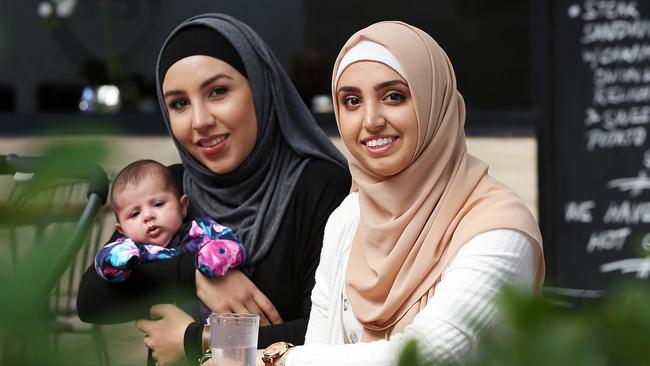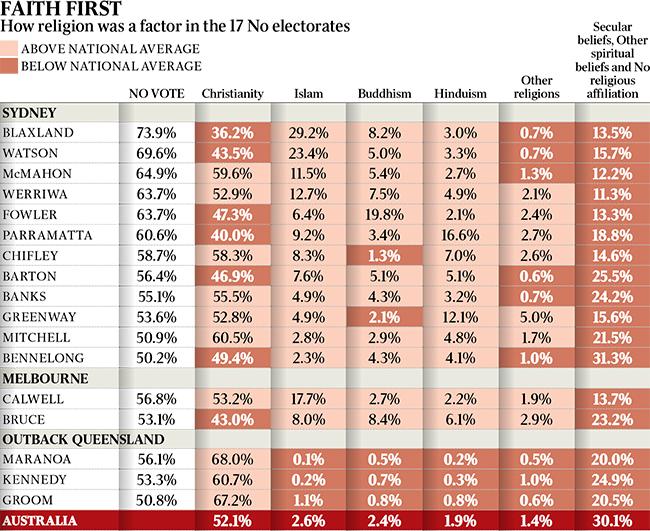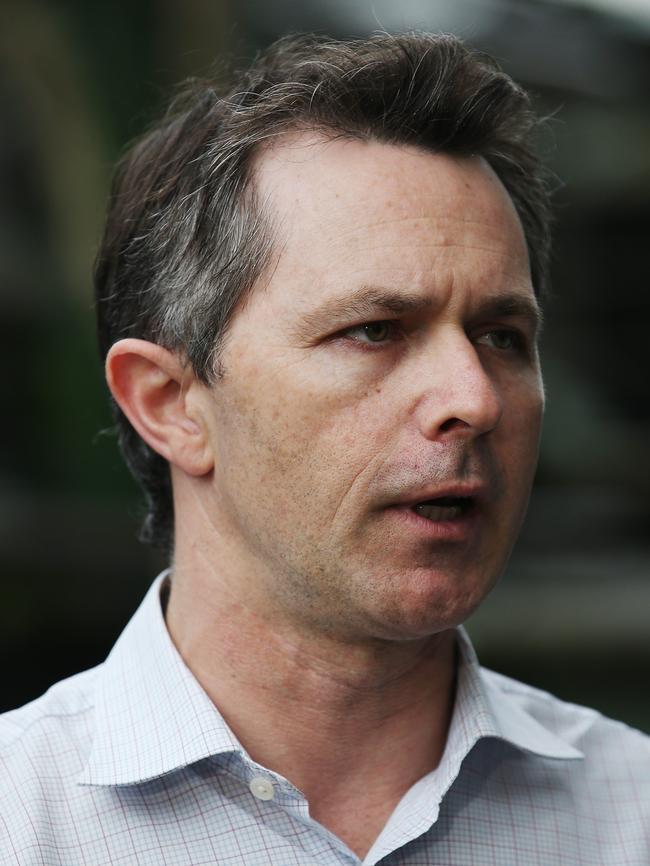Same-sex marriage: MPs in the hot seat after No votes
Majority opposition to same-sex marriage in Labor seats across Sydney’s west has left eight federal MPs out of step.

Majority opposition to same-sex marriage in Labor seats across Sydney’s west — topped by the nation’s highest No vote of 73.9 per cent in Blaxland, formerly held by Paul Keating — has left eight federal MPs out of step with the community attitude in their electorates.
The postal survey result released yesterday posed an immediate dilemma for members of Bill Shorten’s opposition team, including frontbenchers Jason Clare in Blaxland, Tony Burke in Watson and Chris Bowen in McMahon, about how they would represent the interests of their voters in parliament on the issue.
Only one of the nine federal Labor MPs from western Sydney whose electorates rejected same-sex marriage, Chris Hayes in Fowler, is known to support maintaining the traditional view of marriage in keeping with his electorate. Mr Hayes stood by his concerns yesterday about a need to protect religious freedom.
Other western Sydney Labor MPs in electorates with strong Muslim communities and diverse ethnic groups that support the status quo went on the defensive, saying they had been upfront about their support for gay marriage even if it was at odds with voter majorities. They deflected suggestions they might defy the verdict of communities in any parliamentary vote to legalise same-sex marriage, declaring voters subject to prejudice on other matters could depend on their support.
Speaking near Mr Clare’s electorate office in Bankstown, Zainab Ali, 20, said she wanted her seven-week-old daughter, Baaran to grow up feeling only love and tolerance for her fellow human beings — but she confirmed she voted No in the same-sex-marriage plebiscite. Ms Ali was in the majority from Blaxland where just 26 per cent of voters supported same-sex marriage.
Mr Clare declined to appear in public or comment yesterday on whether the result would affect his parliamentary vote on amending the Marriage Act.
But he issued a statement saying he was not surprised at the result because his electorate was “very socially conservative”.
“I’ve always known the views of my electorate on this issue and I’ve always been upfront with them about mine,” Mr Clare said. “Good people with good hearts can have different views on this important issue.”

Ms Ali said she wondered how she would explain same-sex marriage to her daughter. She intended to teach her the same view of marriage from her upbringing, but she worried that her daughter could be confused by what she learned at school.
She did not want to feel hatred towards anyone whose views were different from her own, she said.
“I am a new mum, and I was just wondering how I am going to answer her questions as she grows up,” Ms Ali said.
“Just because I am against an act I don’t want her to hate people. I would be so disappointed if she treated people differently.”
Ms Ali believes religious leaders should not be forced to marry same-sex couples if it contradicted their beliefs. But she is firmly of the view that caterers, florists and other service providers should not be allowed to discriminate.
Ms Ali’s childhood friend Asra Saffar, who, like Ms Ali, came to Australia from Iran as a refugee, also voted No. The pair, who went to local public schools, were raised to believe marriage should be between a man and a woman, in accordance with their Muslim faith.
Ms Saffar, 21, said she accepted not everyone shared her views.
“I will accept you and be your friend, but it doesn’t mean that I have to believe what you believe,” Ms Saffar said.
She said she worried her community would be exposed to hate because it did not support same-sex marriage.
Ali Ahmad, who runs a grocery and spice store in Bankstown, said he could not understand how Mr Clare could support same-sex marriage, when it ran against the views of his electorate.
He believed support for Mr Clare would plummet because of his support for the “yes” vote.
“I am not going to support him,” he said. “Nobody is going to support him anymore.”
Mr Burke, whose western Sydney Labor electorate of Watson recorded the second-highest No vote, at 69.6 per cent, said in a tweet that he went to last year’s federal election with a commitment to vote Yes. “That doesn’t change,” he said. “My community knows that if they are treated with prejudice, vilified or marginalised in any way I will stand up for them regardless of polls. The same applies to this issue.”

Sydney Muslim community leader Keysar Trad said he hoped Mr Burke and other Labor MPs representing electorates where majorities rejected same-sex marriage would reconsider, and vote No if it came to a vote in parliament.
Mr Trad said Mr Burke was among Labor MPs who had “gone out of their way to promote the Yes vote”, but it was clear “those electorates are opposed to that”.
“The reason is that this area still has a healthy level of religious observance and also a healthy number of places of worship, churches and mosques,” Mr Trad said.
Out of the 17 electorates nationally that recorded No votes, nine were Labor-held seats in western Sydney: Barton, Blaxland, Chifley, Fowler, Greenway, McMahon, Parramatta, Watson and Werriwa.
Three Liberal No-vote electorates in the Sydney area were Banks, held by David Coleman, Mitchell, held by Alex Hawke, and Bennelong, held by John Alexander until his resignation this week.
Mr Coleman supports a Yes vote, while Mr Hawke did not declare his position before the vote.
The remaining five No-vote electorates outside NSW were Bruce and Calwell in Melbourne (both Labor); Groom and Maranoa in western Queensland (Liberal National Party); and Kennedy in north Queensland (Katter’s Australia Party).
Ed Husic, the Labor member for Chifley in Sydney’s west, and Australia’s first Muslim MP, yesterday focused on the 61.6 per cent national vote in favour of same-sex marriage that he personally supports — and not the 58.7 per cent vote against in his electorate.
In a Facebook post above a NSW Labor rainbow logo, Mr Husic said: “Australia has spoken. Let’s get this done.”
Linda Burney, whose Labor electorate of Barton voted 56.4 per cent against, tweeted: “It’s clear there are a range of views on this issue, including in my electorate, and I respect each and everyone’s opinion. But I made it clear long ago, that I support #MarriageEquality and I will vote for it in the parliament.”
Mr Hayes, whose Fowler electorate voted 63.7 per cent against same-sex marriage, said he did not want to frustrate the passage of legislation reflecting the Yes vote, but stood by his convictions about the need to protect religious freedom.
“My personal view is that I don’t believe the issue of religious liberty should be dealt with in the same-sex legislation,” Mr Hayes said.
He said protection was needed in particular for “the teaching of doctrine, the running of faith- based organisations, our faith- based schools and faith-based welfare agencies”.



